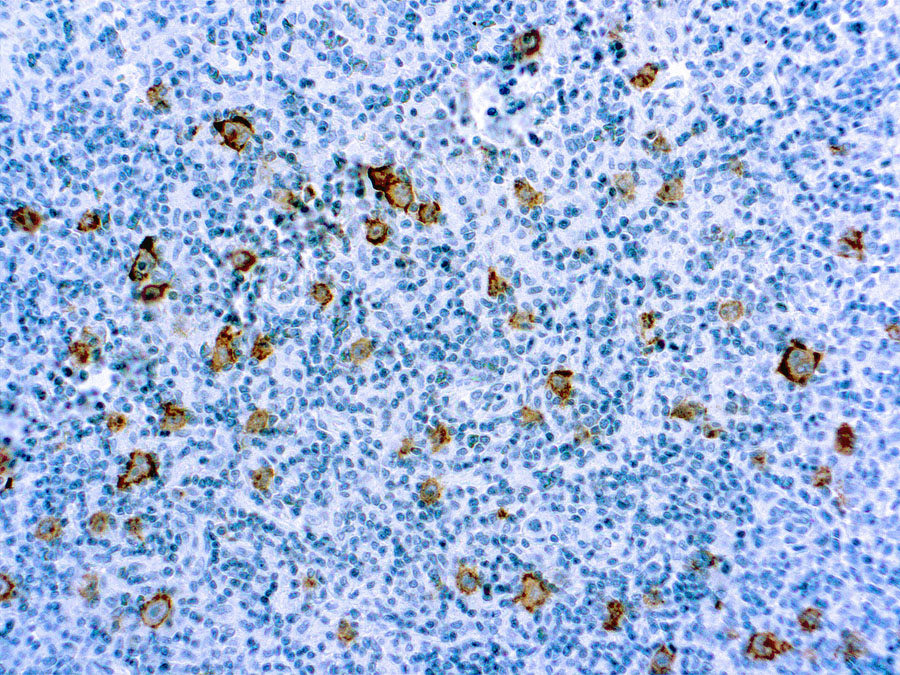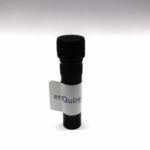Antibody DISCONTINUED
Application Notes
| Specification | Recommendation |
|---|---|
| Recommended Dilution (Conc) | 1:50-1:100 |
| Pretreatment | EDTA Buffer pH 8.0 |
| Incubation Parameters | 30 min at Room Temperature |
Prior to use, inspect vial for the presence of any precipitate or other unusual physical properties. These can indicate that the antibody has degraded and is no longer suitable for patient samples. Please run positive and negative controls simultaneously with all patient samples to account and control for errors in laboratory procedure. Use of methods or materials not recommended by enQuire Bio including change to dilution range and detection system should be routinely validated by the user.
CD30 Information for Pathologists
| CD30 General Information | |
|---|---|
| Alternate Names | |
| Molecular Weight | |
| 91.3 kDa | |
| Chromosomal Location | |
| p34.2 [chr: 1] [chr_start: 42463330] [chr_end: 42654664] [strand: 1] | |
| Curated Database and Bioinformatic Data | |
| Gene Symbol | CCDC30 |
| Entrez Gene ID | 728621 |
| RefSeq Protein Accession(s) | XP_016857714; XP_011540370; NP_001074319; XP_011540369; XP_016857715 |
| RefSeq mRNA Accession(s) | NM_001355224; NM_001355226; XM_024449502; XM_024449505; XR_002957535; XM_011542068; XM_011542069; XM_011542070; XM_017002226; XM_024449503; XM_011542071; XM_024449504; NM_001080850; NM_001355227 |
| RefSeq Genomic Accession(s) | NC_000001 |
| UniProt ID(s) | Q5VVM6 |
| PharmGKB ID(s) | PA165750513 |
| KEGG Gene ID(s) | hsa:728621 |
| General Description of CD30 . | |
| CD30, TNF-receptor superfamily member, is a receptor for TNFSF8/CD30L. TRAF2 and TRAF5 can interact with this receptor and mediate the signal transduction that leads to the activation of NF-kappaB. This receptor is a positive regulator of apoptosis, and it also has been shown to limit the proliferative potential of autoreactive CD8 effector T cells and protect the body against autoimmunity. The CD30 antibody labels activated B and T cells. It has been useful in identifying Hodgkin’s lymphoma, anaplastic large cell lymphomas (ALCL) and primary cutaneous CD30+ T-cell lymphoproliferative disorders. In non-lymphoid malignancies, CD30 reactivity has been reported in embryonal carcinomas (ECs), seminomas, and hepatocellular carcinomas | |





There are no reviews yet.